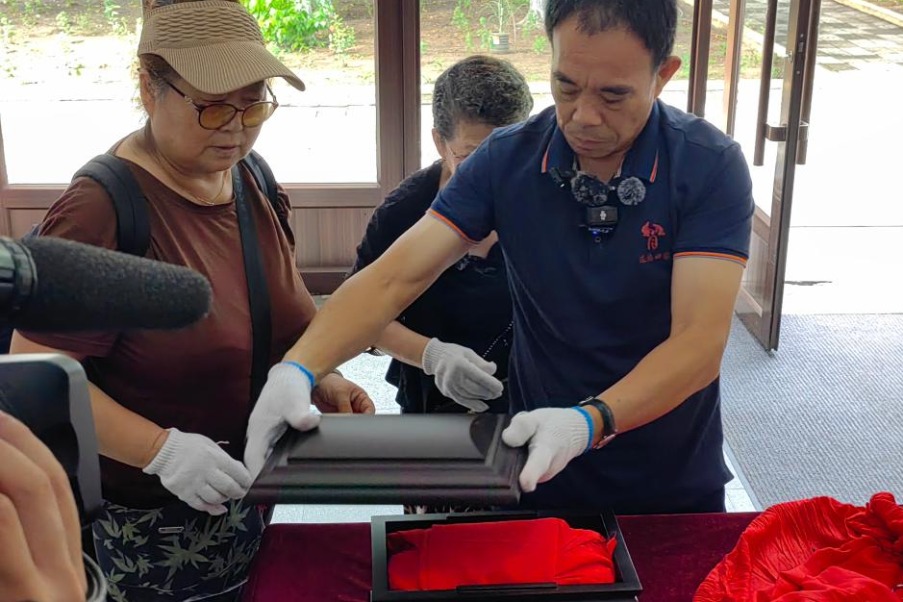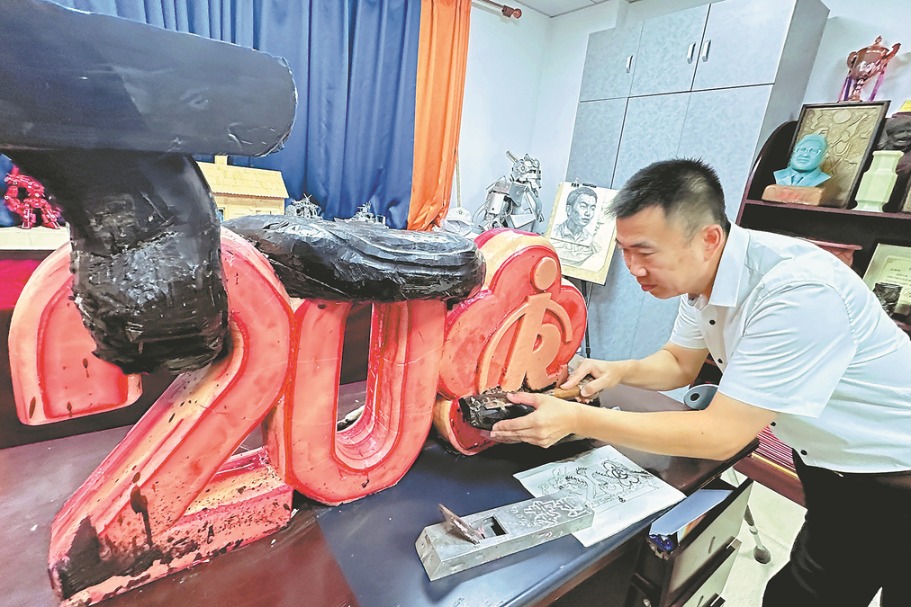Policymakers put people's interests first

Key political event a forum for leaders to hear opinions from the grassroots
The two sessions, China's biggest annual political event, are an embodiment of whole-process people's democracy. Through them, the people's voices are heard by policymakers.
Every year since 2013, during the annual session of the National People's Congress, the nation's top legislature, and the annual session of the National Committee of the Chinese People's Political Consultative Conference, the nation's top advisory body, Xi Jinping, general secretary of the Communist Party of China Central Committee, has had discussions with grassroots-level lawmakers and political advisers from across the country, and listens to them and asks for their suggestions on the country's development.
As a result, the two sessions have become a strong bond linking the Chinese leader and people at the grassroots level, and the suggestions made by lawmakers and political advisers have been translated into concrete measures to bolster the nation's growth and improve people's well-being.
When Yuan Yuyu, an NPC deputy from Guangdong province, attended the first session of the 13th NPC in Beijing in March 2018, he had an opportunity to talk with Xi, who is also Chinese president and the chairman of Central Military Commission, and made suggestions to him about legislation on technological innovation.
Xi attached great importance to Yuan's suggestions. He said: "Development is the top priority, talent is the primary resource and innovation is the primary driving force. China will not truly get stronger if it fails to pursue an innovation-driven development path and facilitate the transformation of old growth drivers into new ones."
Recalling that face-to-face conversation with Xi at the Great Hall of the People five years ago, Yuan, chairman of Medprin Regenerative Medical Technologies in Guangzhou, capital of Guangdong province, said he was greatly encouraged by Xi's words. "He gave great attention to innovation and talent, which are crucially important to enterprises," he said.
In response to Yuan's suggestion, the National Development and Reform Commission and other related ministries under the State Council jointly worked out specific policies to advance technological innovation in key fields, developed a series of projects to overcome difficulties in core technologies and built a number of industrial innovation centers.
They also formulated policies to underpin the pillar role of enterprises in strengthening scientific and technological innovation and worked out systemic measures to support enterprises in promoting innovation.
"My suggestion was adopted. Over the past years, the nation has attached greater importance to innovation, unveiling a great number of policies and measures to promote innovation," Yuan said. "As an NPC deputy and an overseas-educated Chinese returning to start up a business, I feel upbeat about the future."
Yuan was not alone. Over the past five years, a total of 57 NPC deputies and 35 political advisers offered 159 suggestions and opinions during their face-to-face meetings with Xi at the annual two sessions. Their suggestions cover a wide range of topics, including high-quality economic growth, reform and opening-up, ecological conservation, poverty alleviation, rural revitalization, education, healthcare and grassroots governance.
Xi is always keen to attend to the suggestions from the grassroots-level lawmakers and political advisers, and asks relevant authorities to study them seriously. He said that upholding the people-centered development philosophy requires putting the people first, relying on the people and delivering benefits to the people, with all decisions and policies formulated for the people and implemented in specific work.
Liu Qi, a member of the CPPCC National Committee, still remembers his talk with Xi on May 23, 2020, when Xi met with the political advisers from the economic sector during the two sessions.
Liu said he was impressed by the general secretary's great passion for the people and his close connections with the people. "When someone talks about people at the grassroots level, or poverty alleviation efforts in mountainous areas, he will ask for more details," he said.
During that meeting, Liu suggested to Xi that sustained and increased investment should be made in expanding infrastructure construction in rural areas, with an emphasis on roads, water conservancy projects and environmental protection.
His suggestion was adopted as, in the following years, the National Rural Revitalization Administration and other related ministries worked out and implemented plans for infrastructure projects in rural areas, and increased financial support for them to address difficulties related to potable water and road transport.
With the construction of large-scale water supply projects and support facilities throughout the country, more than 87 percent of the countryside in China has access to tap water.
Xi has said that no matter how small the people's concerns are, they should be seriously addressed.
Education is one of the immediate concerns that matter to the people's interests, as equal access to education is an important foundation of social fairness.
At a joint group meeting of political advisers in the health and education sectors on March 6, 2021, Yan Chunhua, a member of the CPPCC National Committee, reported to Xi about his suggestion for optimizing the structure of higher education to advance the sector's high-quality development.
Yan said that greater efforts should be made to step up support for higher education in central and western China to address the problem of unbalanced development of higher education nationwide.
In response, Xi said that the problem of inadequate and unbalanced development of education is closely related to inadequate and unbalanced development in different regions.
"We should improve the quality of education in the central and western parts of the country to spur the development of the whole region. By resolving the unbalanced development of education, we strive to promote balanced growth in other aspects," Xi said at the meeting.
Six months later, the general offices of the CPC Central Committee and the State Council jointly issued a guideline to revitalize higher education in central and western China in the new era as part of the nation's efforts to boost the region's education.
In May 2022, the Ministry of Education approved Northwest China's Gansu province to set up a pioneering zone to promote reform of higher education in the region.
Xinhua contributed to this story.
- Intl tourists captivated by traditional opera gala in Kunshan
- Training and transport jets showed at Changchun air show
- Dunhuang expo offers a key platform for dialogue among civilizations
- Lora Saalman: Beijing Xiangshan Forum crucial for dialogue amid cybersecurity risks
- Lora Saalman: Beijing Xiangshan Forum provides platform for dialogue amid rising tensions
- Unexploded WWII bomb defused in Hong Kong




































